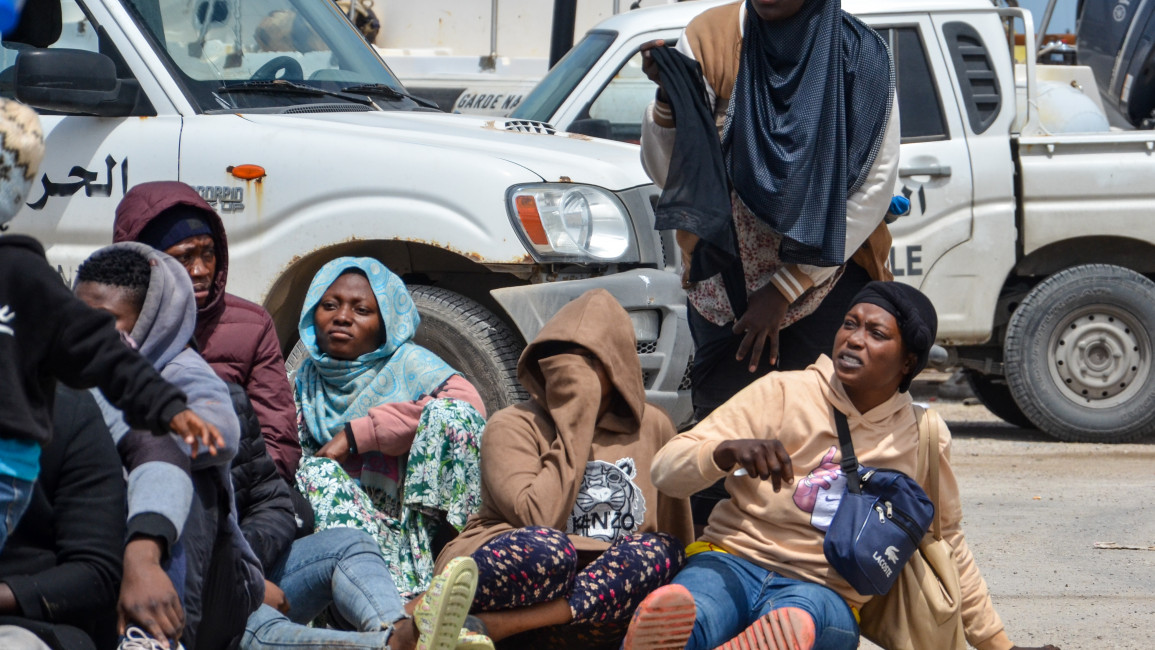Tunisia arrests Christian Kwongang, Cameronian student and former leader of migrant students group
Tunisian authorities have arrested a Cameronian pro-migrant activist as the North African state continues its crackdown on Sub-Saharan migrants.
Christian Kwongang, the former leader of The Association of African Students and Interns in Tunisia (AESAT), disappeared on 19 March after he went to a police station to "retrieve his residence permit," according to AESAT.
"At the latest update, Christian Kwongang is detained at the El Ouardia centre [a southern district of Tunis] without any official reason," stated AESAT in a press release on 26 March, as it called on authorities to clarify the reasons behind the student's arrest.
Kwongang, enrolled at the private university UPES in Tunis, was "going to pick up his permanent residence permit" when he was detained at the police station and then transferred to El-Ouardia centre.
He was allowed to make a phone call, during which he explained that he was questioned about his pro-migrant activities.
El-Ouardia migrants' centre in Tunis, where Kwongang is reportedly detained, is meant to serve as a reception centre to "welcome and orient" new arrivals to Tunisia. Yet, the conditions inside the centre have long been obscured due to the prohibition of access by NGOs and lawyers.
Since its inauguration, the operation of El-Ouardia Center has been unclear.
Between 2011 and 2013, the centre was open to humanitarian organisations. However, since 2013, only organisations that have an agreement with the Ministry of the Interior have been able to access it.
The World Organization Against Torture (OMCT) deemed the centre a "lawless area where people are arbitrarily deprived of their liberties."
Last March, The New Arab spoke to several migrants in the centre who said they were subjected to physical violence and forced to sign repatriation papers.
The centre has never officially addressed the accusations.
The Tunisian Forum for Economic and Social Rights (FTDES), an NGO specialising in migration issues, has called for Kwongang's "urgent release" as he is being detained "outside any legal framework."
Since 25 July 2021, when President Kais Saied suspended parliament, the centre has only been used for detaining migrants and operates at maximum capacity.
In El-Ouardia, detention and liberation become administrative rather than judicial matters. A detainee cannot appeal their case or ask for judicial support, like help from a lawyer; instead, the decision to detain the person is taken by a public servant explains FTDES, which continues to call for closing El-Ouardia.
The NGO "fears that Kwongang might be paying for his pro-migrant activism" following Saied's infamous speech.
Last February, President Saied denounced the arrival of "hordes of clandestine migrants" in Tunisia as part of a plot "to change the demographic composition" of the country.
Saied's conspiracy led to clashes between citizens and migrants, a surge of racism, and, later on, the deportation of hundreds of black migrants to the Sahara zone, where they were left to fend for themselves.



